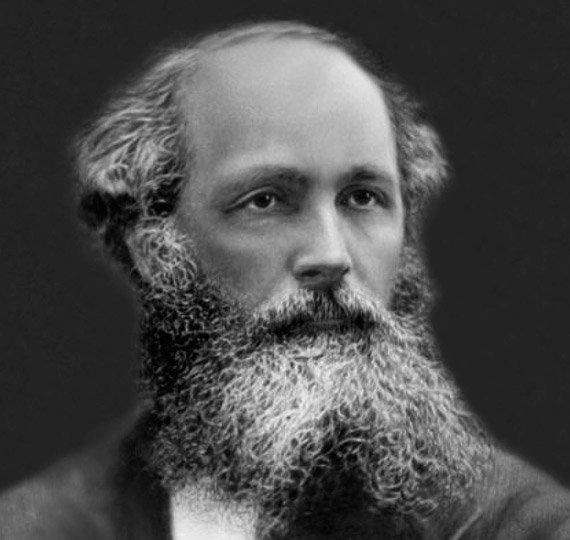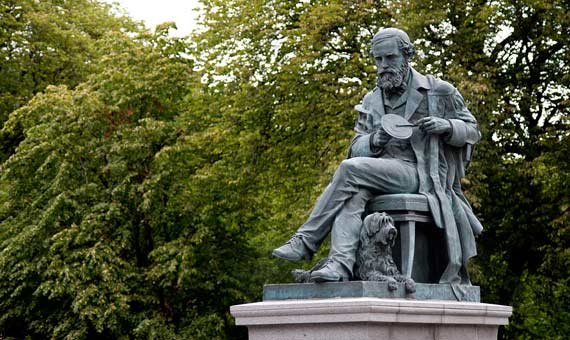
What Maxwell did not know is that his work on electricity and magnetism would cause a revolution in telecommunications much greater than that submarine cable. Although that was not his goal. He was just playing with the basic laws of physics. As when he explained, in a very original essay, that Saturn's rings are made up of millions and millions of loose pieces. Without sophisticated telescopes, Maxwell simply used mathematics to show that this was the only way for the rings to remain stable. So, when in 1980, more than 120 years later, the Voyager spacecraft sent us detailed photos of Saturn's rings, no scientist was surprised to see particles of dust, rocks and huge rocks spinning around.
Thanks to his experiments to discover how people perceive colors, he managed to make the first color photograph, a combination of three images: red, green and blue. In addition, he was commissioned to set up at the University of Cambridge an experimental physics laboratory that became the world's leading pointer. But his most ambitious project was pure theory. It had been observed that the electric current and the magnets were closely related and Faraday had explained it by some very intuitive ideas but had not been able to translate them into formulas. Maxwell, one of the few scientists who believed him, resorted again to his mathematical abilities and in 1873 summed up Faraday's ideas in four equations, explaining all electrical and magnetic phenomena: for example, that the poles of a magnet can not be separated; or that moving a magnet generates electricity, and vice versa.

Maxwell's equations showed that electricity and magnetism are two sides of the same coin, and also that light is that coin in motion. Combining his equations Maxwell predicted that, in certain cases, the effects of an electric charge or a magnet would come to feel very far away, because their electromagnetic fields could travel in the form of waves and their effects; according to his calculations, those waves went at the speed of light, so he supposed that light was an electromagnetic wave. A decade after his death, Hertz proved in 1888 that there were other types of electromagnetic waves besides light. Hertzian waves had immediate application on the radio, then on television and today they are behind the buzzword in computing: wireless (wireless). These waves were the real proof that Maxwell was right in his predictions and that, using only mathematical tools, he had managed to unify electricity, magnetism and optics, a feat that inspired the great physicists of the twentieth century. Following the example of Maxwell, Albert Einstein tried in vain to incorporate the force of gravity to this great unification of physics, a challenge still pending.
Congratulations @and2300! You have completed the following achievement on the Steem blockchain and have been rewarded with new badge(s) :
You can view your badges on your Steem Board and compare to others on the Steem Ranking
If you no longer want to receive notifications, reply to this comment with the word
STOPVote for @Steemitboard as a witness to get one more award and increased upvotes!
Downvoting a post can decrease pending rewards and make it less visible. Common reasons:
Submit